Greece / Ελληνική Δημοκρατία – Let’s explore here
What’s it like in Greece?
Greece is located at the south end of the Balkans and consists of many mountains and thousands of islands, the largest being Crete. The highest point is Mount Olympus, home of the ancient Greek gods, at 9,573ft (2,919m). Greece’s neighbours include Albania, Bulgaria, North Macedonia and Turkey.
Greece is an absolutely fantastic country, with such a rich history, endless amazing sights, a wide variety of landscapes – both on the mainland and on the islands, year round sun, beautiful coastlines and amazing food. You can even apply to stay and work for an extended time as a digital nomad. I liked it so much when I visited many years ago that I stayed and lived in Agia Galini in Crete.
Living on the islands in Greece is simply incredible. The pace of life, the endless sun, availability of gorgeous unknowns beaches that are off the beaten track is simply amazing. One thing that I was unaware of though was just how seasonal some of the town and villages are. As when all the tourists return home, many of the restaurants and hotel shut up shop completely and return to the cities – which can quickly leave you without income.
That said, there is always so much to explore, you’ll never be bored. This is especially true when you consider that Greece is the cradle of western civilisation. It’s the birthplace of democracy, philosophy and literature, many scientific and mathematical discoveries and theatre.
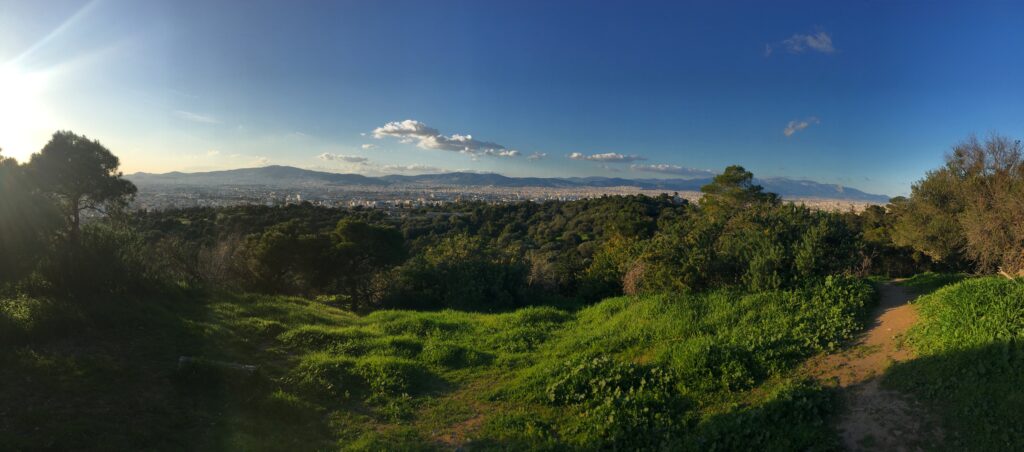
A bit about the history of Greece
Greece has a long and influential history, known for its contributions to philosophy, politics, art and science.
Ancient Greece
The history of Greece dates back to the ancient Greek civilization, which flourished from the 8th century BC to the 4th century BC. This period saw the rise of powerful city-states like Athens, Sparta and Corinth. Athens became a center of democracy, philosophy, and the arts, with figures like Socrates, Plato, and Aristotle shaping Western thought. The Greeks also made significant advances in mathematics, science and architecture, exemplified by landmarks such as the Parthenon. The period ended with the conquests of Alexander the Great, whose empire spread Greek culture across much of the known world, from Egypt to India.
Roman and Byzantine Periods
After Alexander’s death in 323 BC, Greece became part of the Roman Empire. It remained under Roman rule for centuries. Following the fall of the Western Roman Empire in 476 AD, Greece became part of the Byzantine Empire, with Constantinople (modern-day Istanbul) as its capital. The Byzantine Empire preserved Greek culture and Christianity, but by the 15th century, the empire weakened.
Ottoman Rule
In 1453, the fall of Constantinople marked the beginning of Ottoman rule over Greece. The Greeks lived under Ottoman domination for nearly 400 years, during which time they were subject to heavy taxation and limited political freedom. However, Greek culture and Orthodox Christianity persisted during this period.
War of Independence and Modern Greece
In the early 19th century, Greece began a struggle for independence, culminating in the Greek War of Independence (1821-1829). After a long and bloody conflict, Greece gained its independence from the Ottoman Empire in 1830, with support from European powers. The Kingdom of Greece was established, and the country gradually expanded its territory over the following decades.
20th Century
Greece was involved in both World Wars. In World War I, it sided with the Allies, and in World War II, it was occupied by Nazi Germany from 1941 to 1944. After the war, Greece experienced a civil war between communist and anti-communist forces. The monarchy was abolished in 1973, and Greece became a republic in 1974. The country joined the European Economic Community (now the European Union) in 1981.
Modern Greece
Today, Greece is a democratic republic and a member of the European Union, NATO, and the United Nations. The country has faced economic challenges, particularly during the 2008 global financial crisis, but remains a key player in European and international politics, with a rich cultural heritage and significant contributions to Western civilization.
Greece road trip
As this was close to the completion of our monumental 25,000 mile (40,000 km) road trip across most of the countries in Europe, we didn’t spend masses of time in Greece, particularly as we’ve been so many times before.
For our Greek road trip, we travelled from Turkey, through the hills of Greece to Alexandroupoli and Kavala before travelling back up through Bulgaria on our way back to the UK for Christmas. This really improved our knowledge of northern Greece, and enabled us to meet some interesting people.
On arriving in Greece, a blanket of snow covered central Europe, causing all major roads in southern Germany, Austria and Switzerland to be closed. Having experienced excessively dangerous weather in eastern Turkey, we bought some snow chains for the car, kept a keen eye on weather maps and re- routed our journey through warmer climes.
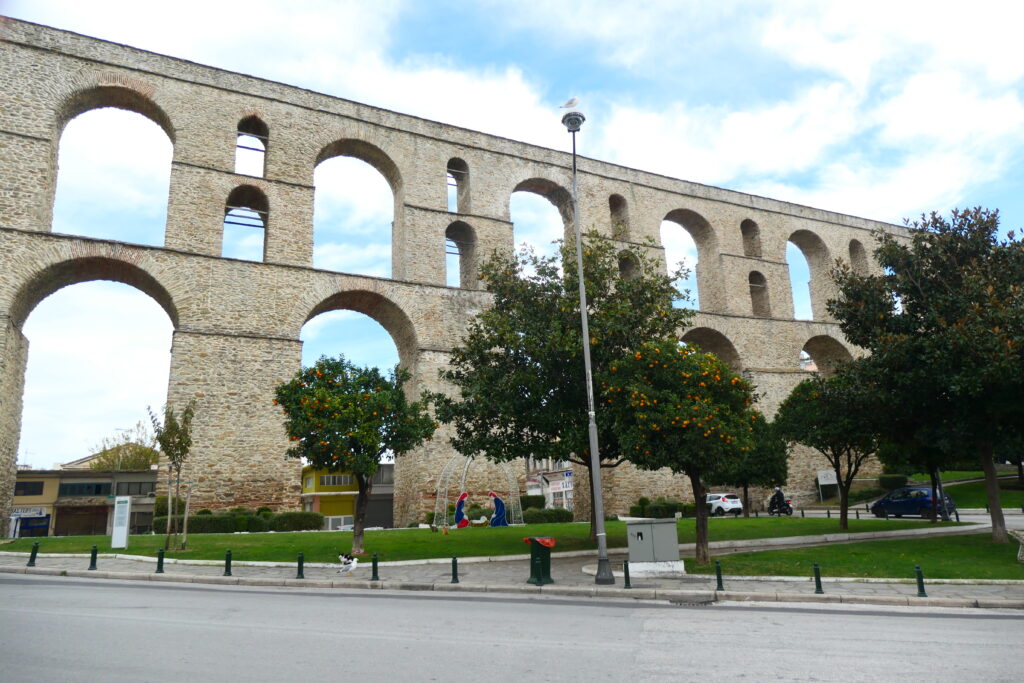
Map of our road trip through Greece
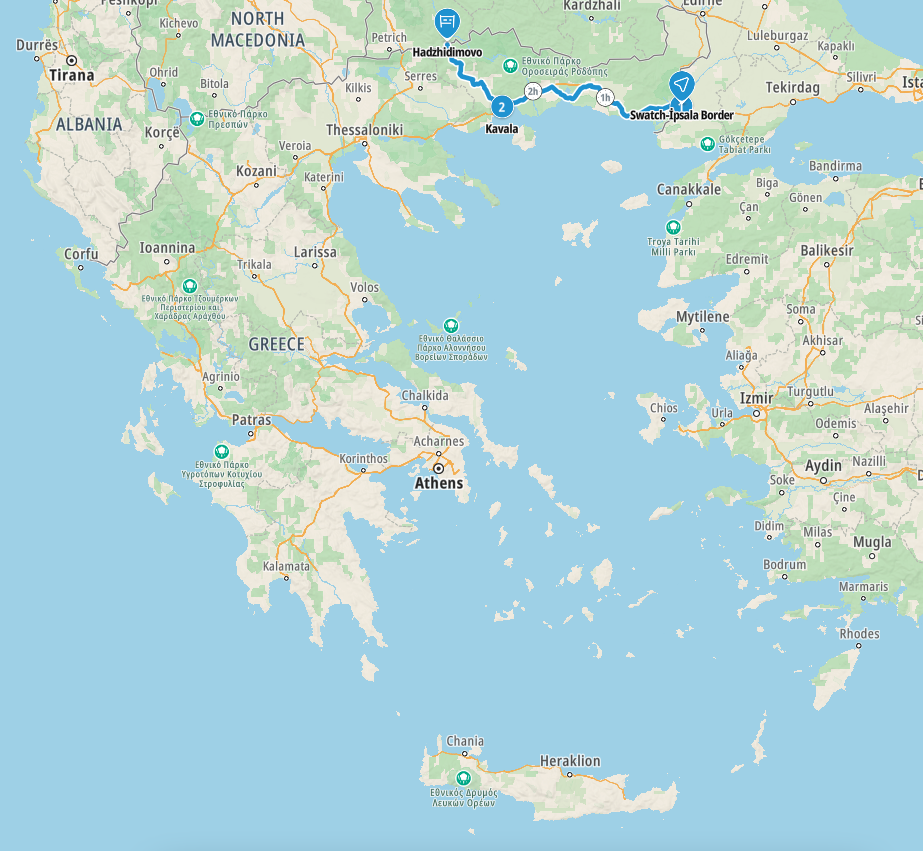
Our favourite places in Greece
These are some of the best places that we explored on our road trips through Greece. We’ve put them in alphabetical order.
Alexandroupoli – Αλεξανδρούπολη
Alexandroupoli is the largest city in Greek Thrace, with a population of around 70,000 (2021). Due to the current conflict inUkraine, it has become an important port for the flow of U.S. military supplies, which has angered both Russia and Turkey. Consequently, the price of accommodation and the flow of cash through the town has increased greatly.
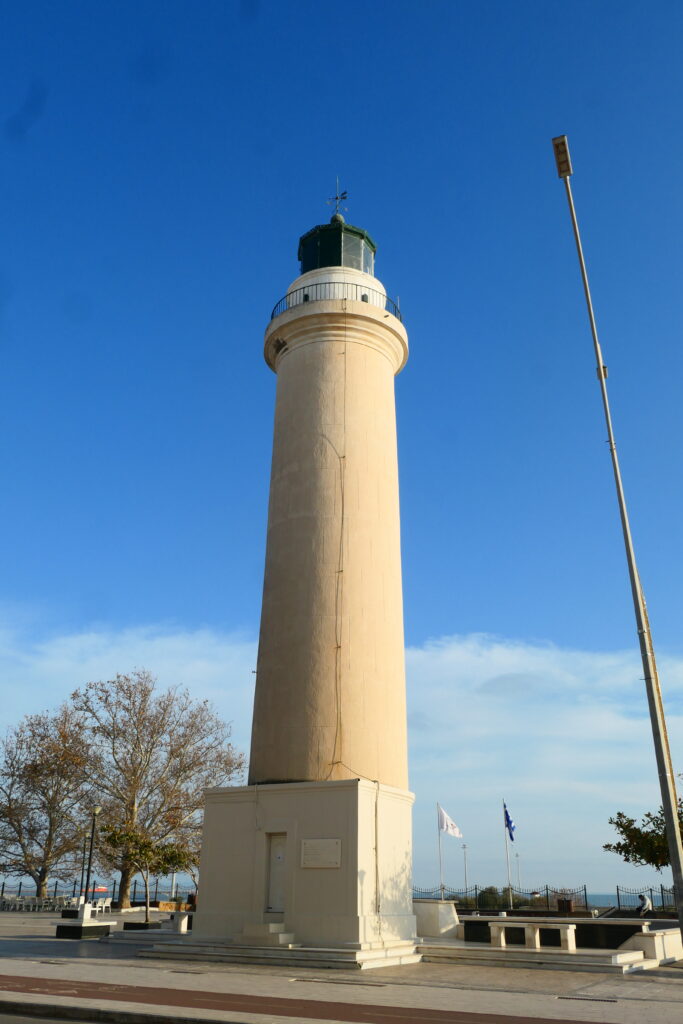
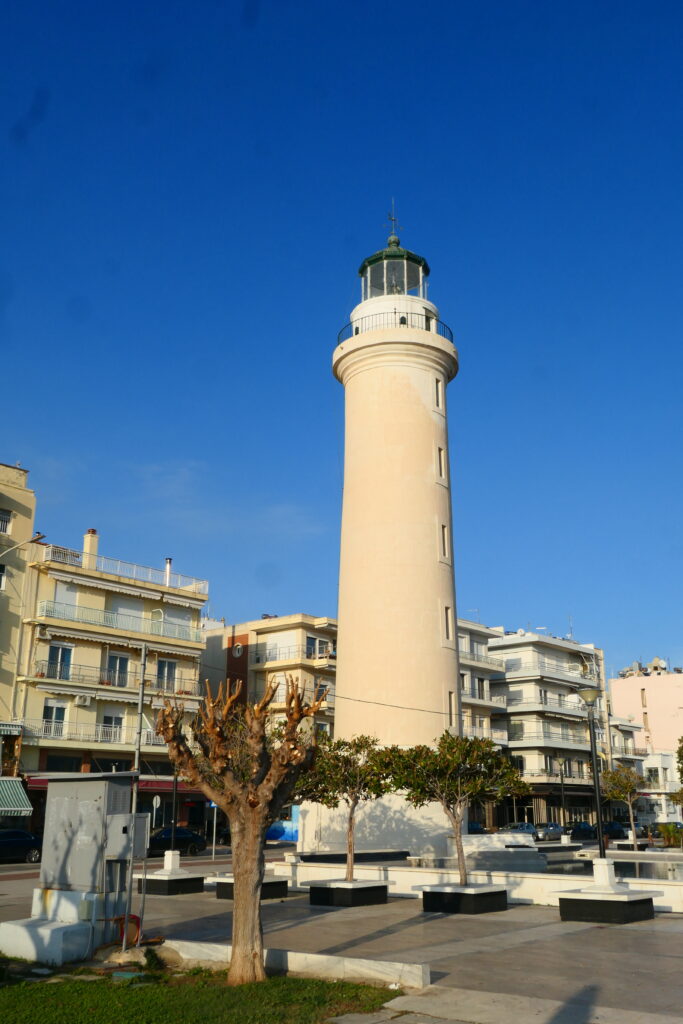

Athens – αθήνα
You should also definitely visit Athens, as it’s simply awesome! The way that all of the ancient monuments are being preserved enables you to easily imagine yourself back in ancient Greece – just incredible! Being a capital city, it can get very busy, especially during the summer months. Last time we visited we went in February when it’s warming up and accommodation is plentiful. In fact the last time we were there was immediately before the lockdowns all across Europe due to the pandemic. There were a handful of people wearing masks that looked kind of bizarre at the time lol!
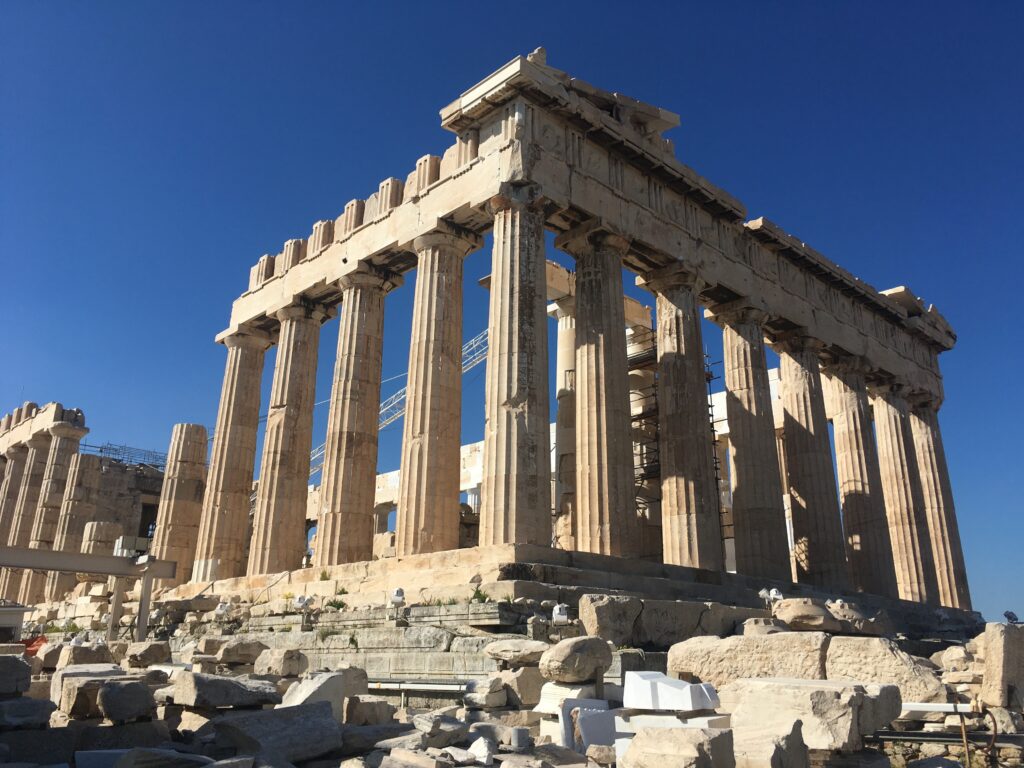
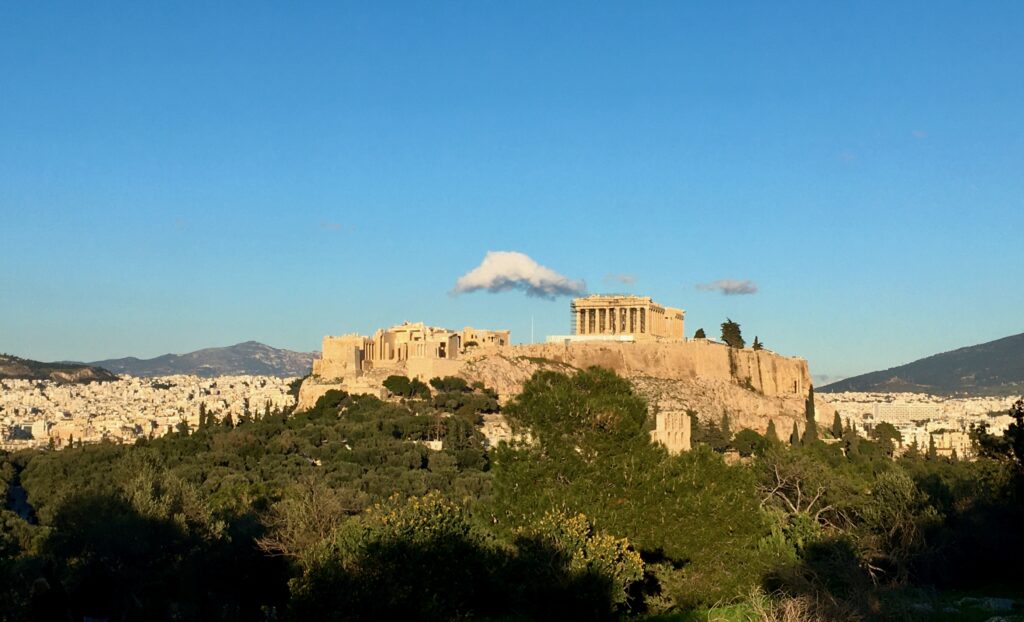
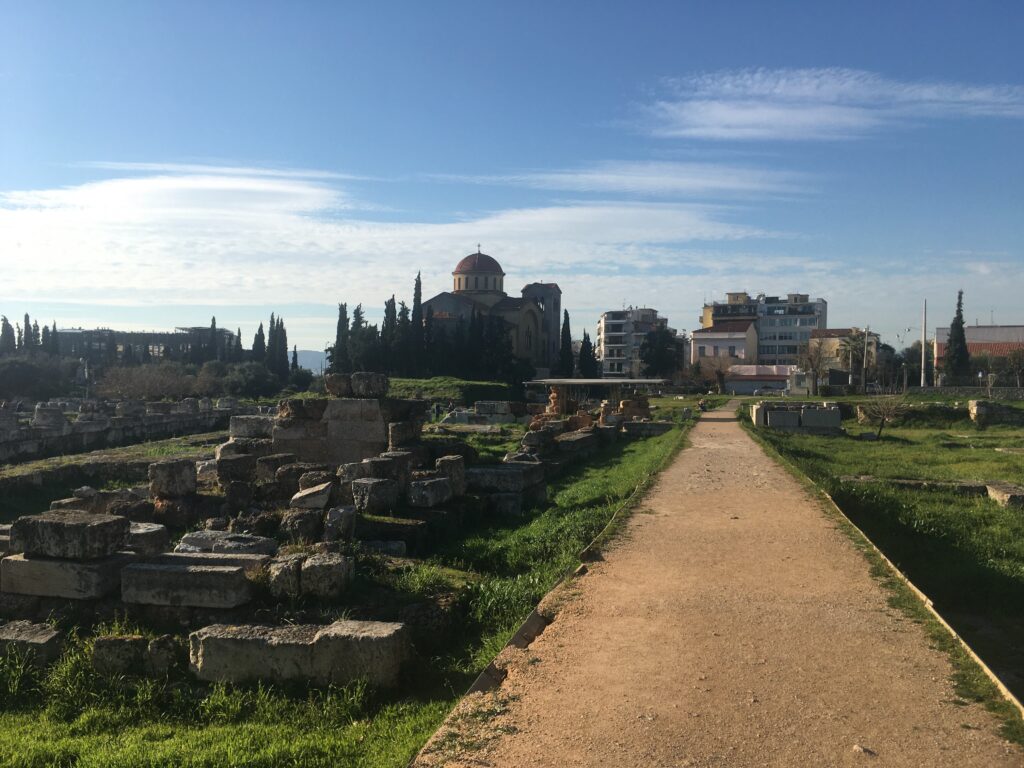

This bronze statue of a horse and young jockey is from about 140 BC. It was retrieved in pieces from the shipwreck off Cape Artemision in Euboea. It was reassembled in 1971, with the financial support of an American lady and the Psichas Foundation.
Crete – κρήτη
If you’ve never been to Crete, I highly recommend it, as there really is something for everyone there. The northern side of Crete is very touristy and has most of the major towns and cities, and thus the museums, restaurants, cafés etc. The southern side of Crete however is a mostly untouched marvel. If you’re after a more relaxing time, the south is where you should head for.
Finding accommodation in the smaller towns and villages in Crete is simply a matter of asking around in the restaurants and cafés – you’ll soon be pointed in the right direction. People are incredibly friendly and helpful from my experience.
Agia Galini
I used to live on the south coast in a coastal village called Agia Galini, and I have such fond memories of the town, and my friend Jack Whitten’s olive tree farm, that I helped renovate.
I used to live about two minutes walk from the beach and the bustling restaurants. Outside my window was a small greek taverna that played traditional music late into the evening. It was opposite a small bakery, where at half past four each morning, the smell of freshly baked bread would wake you up. At half past two one morning after a beach party I was introduced to Greek chips with parmesan melted on top – highly recommended!
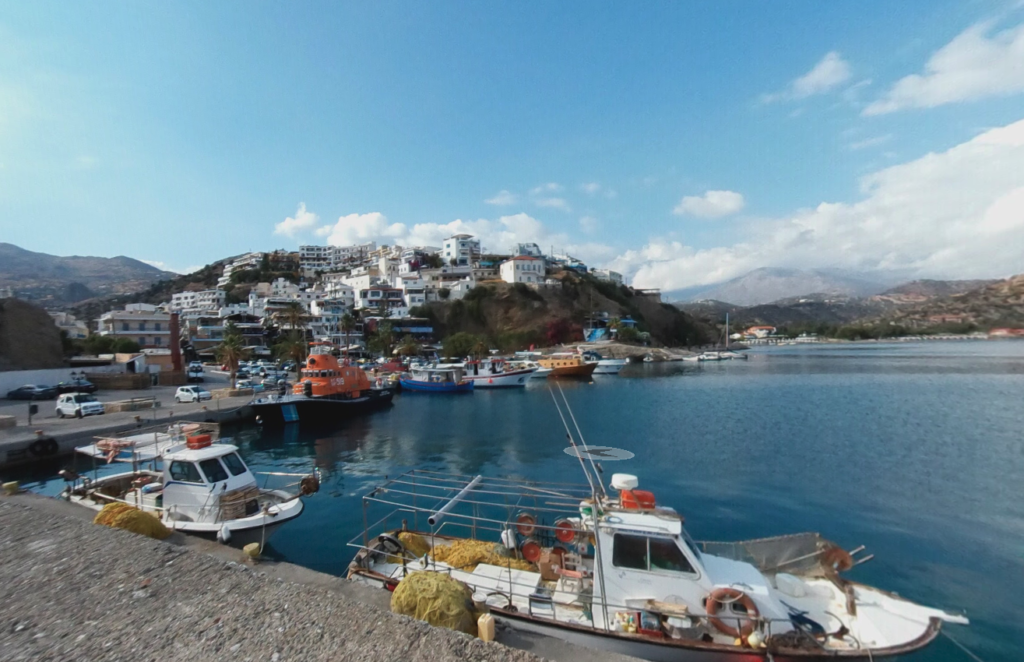
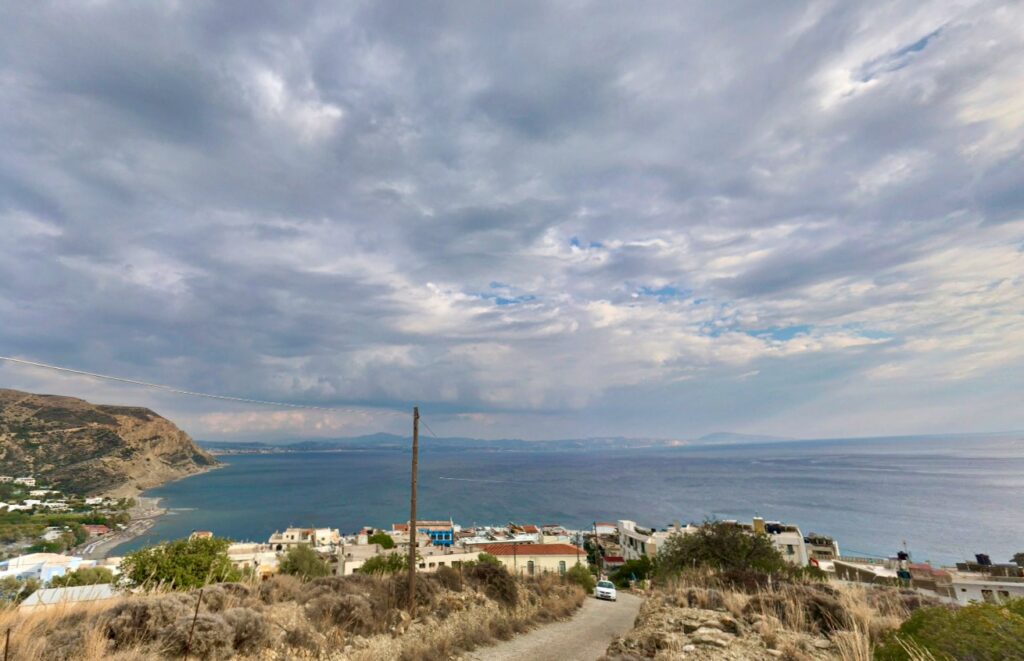

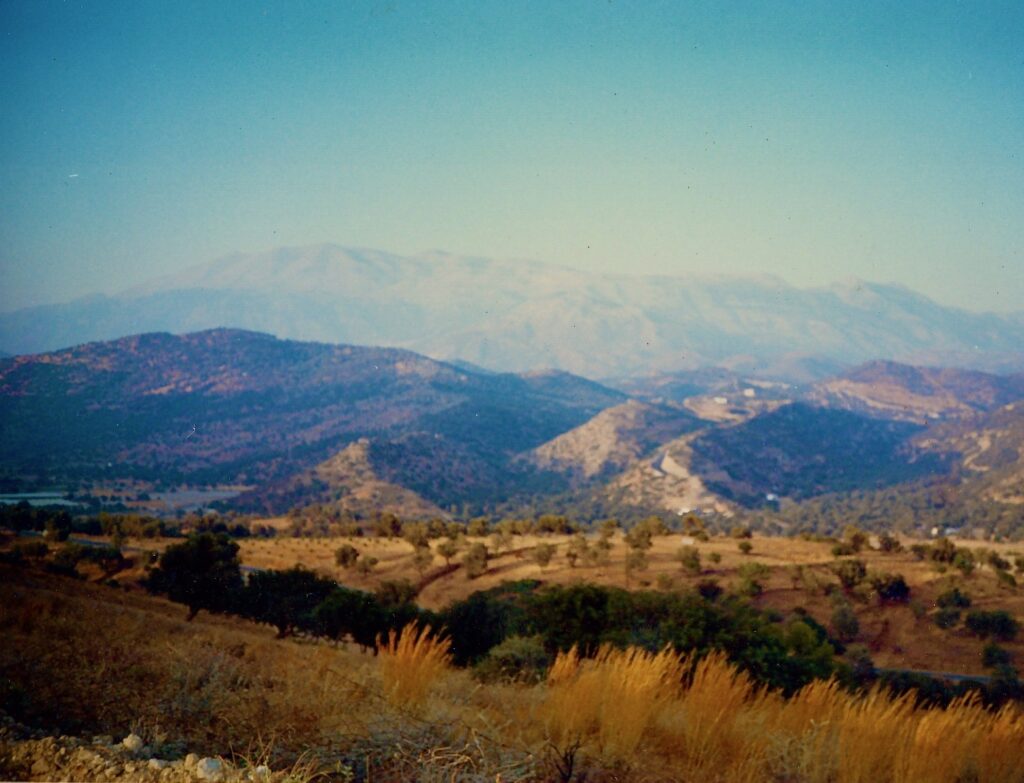
The Samaria Gorge, Crete
You should definitely visit the Samaria Gorge at least once in your lifetime. The gorge lies inside the Samaria National Park, a UNESCO Biosphere Reserve located in the White Mountains of Crete. It’s named after an old village located inside the park, which was abandoned in 1962, when the area was declared a National Park. Outside of tourism its main purpose is as a refuge for the endangered Capra Aegagrus Cretica, also known as Kri Kri or Cretan goat.
The starting point is at Xyloskalo at an altitude of 4,000 ft (1,250 m), ending up the the coastal village of Agia Roumeli. The most famous part of the hike is the place called the “gates” or “Iron gates”. where the two sides of the gorge are 13ft (4m) apart with a height of 1650ft (500m).
The gorge’s length is approximately 8 miles (13km) plus 2 miles (3 km) to the beach where you end up in Agia Roumeli. It takes around 5 – 5 ½ hours at a slow pace.
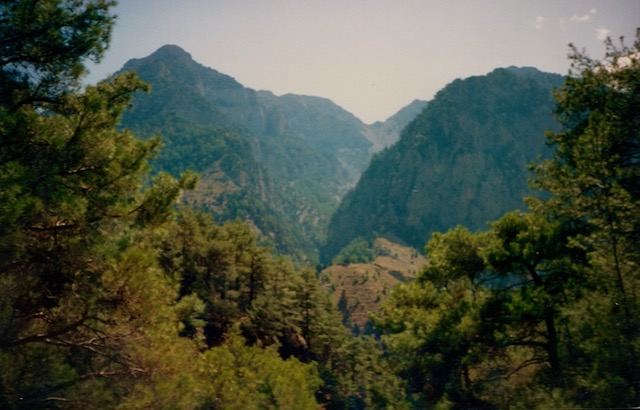
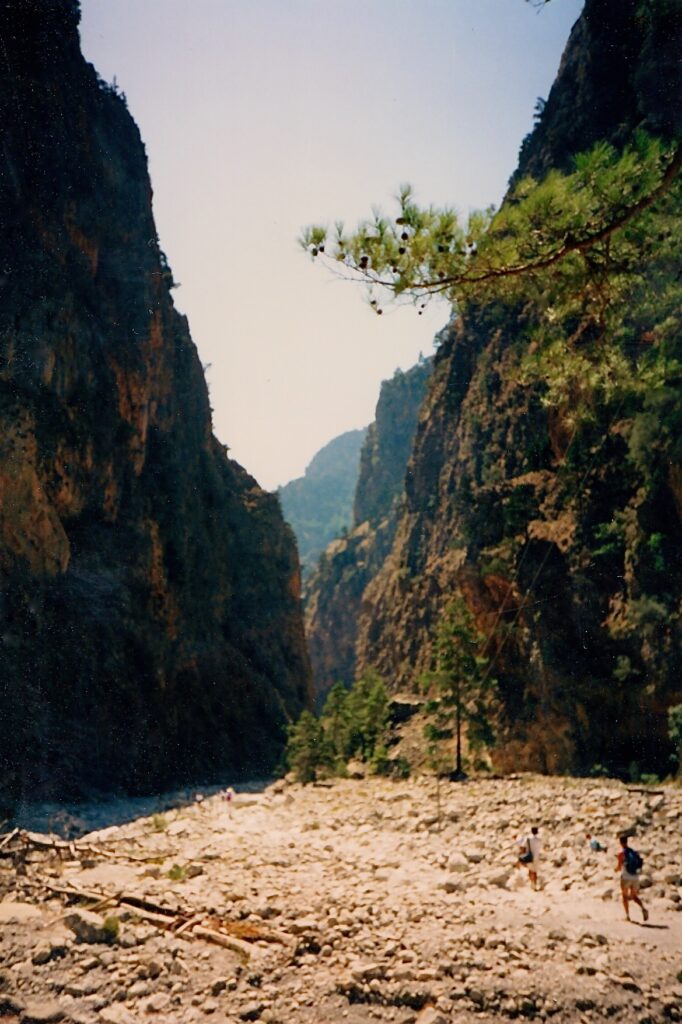

Kavala – Καβάλα
Kavala is a small city of around 65,000 people (2021) near Thessaloniki. The magnificent Aqueduct of Kavala is one of the city’s landmarks. It’s originally of Roman origin, back in the 1st to 6th centuries AD, and was reconstructed In the 16th century by the Ottomans.
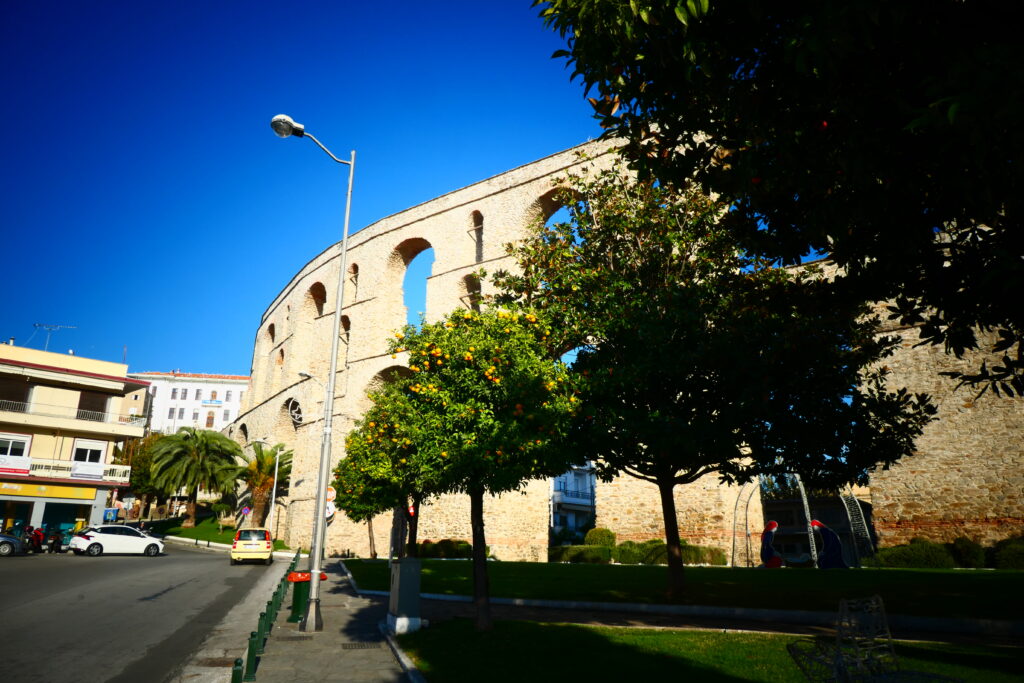
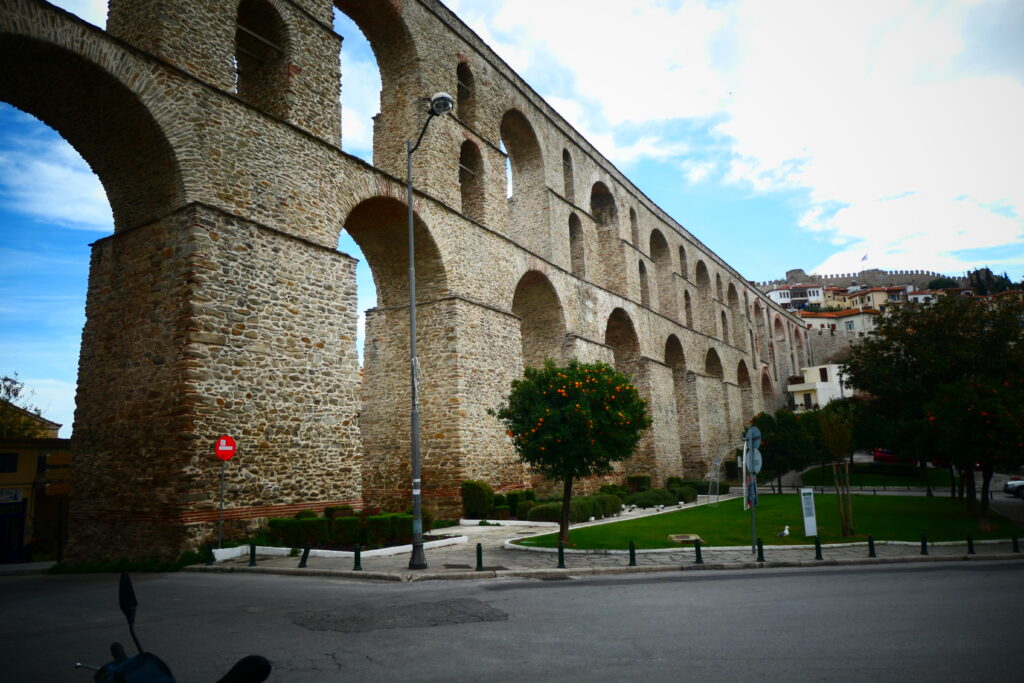


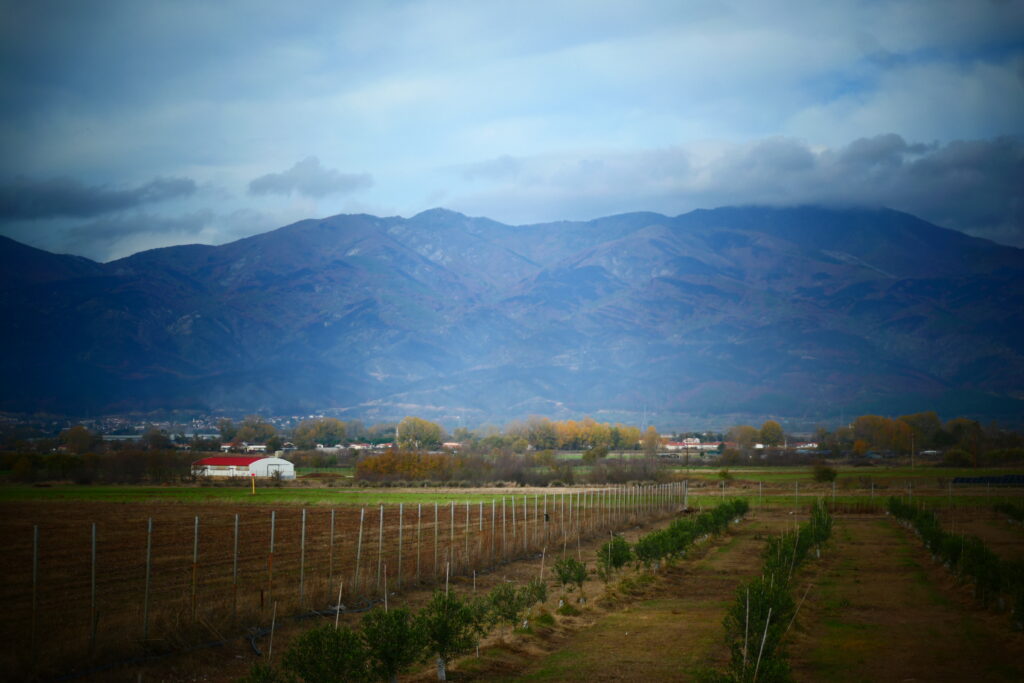

Rhodes – ρόδος
Why do all of these bars keep assuming that when I ask for a large beer, that I’d like to drink out of a giant glass boot? This kind of sums up Rhodes main town if you look like a gullible looking tourist – funny as it is! There is however a lot more to Rhodes that its crowded tourist bar areas.

What’s it like to drive in Greece?
Driving in Greece is pleasant in the main. Roads are not too busy and there is little aggression. This is particularly true on the islands, where life is generally a lot slower paced than in the mainland big cities. Road conditions are mainly fine, and a vast improvement over twenty years ago. This is even true of the roads to villages in general. All of the said, it’s always worth watching out for people on mopeds, as often they may not be wearing the most hard of clothes.
Do you require an international driving permit in Greece?
We’ve created a dedicated page to driving abroad, which answers this question, and more, which you might find helpful.
Can you use your UK driving license when driving through Greece?
We’ve created a dedicated page to driving abroad, which answers this question, and more, which you might find helpful.
Do I need a carnet de passages to drive in Greece?
We’ve created a dedicated page to driving abroad, which answers this question, and more, which you might find helpful.
What are the speed limits in Greece?
As with almost everywhere on the continent of Europe, they drive on the right hand side of the road in Greece.
The speed limits for cars in Greece are:
- 30 mph (50 km/h) for urban driving
- 55 mph (90 km/h) outside of built up areas
- 70 mph (110 km/h) on dual carriageways
- 80 mph (130 km/h) on motorways
What currency do they use in Greece?
In Greece they use the Euro. The use of credit / debit cards is now widespread, although not guaranteed – have some cash just in case, particularly in cafés and restaurants. Travellers cheques are accepted. There are lots of ATMs.
You should make yourself aware of the amount that your bank charges you for using credit and debit cards abroad. Often credit cards are cheaper for purchasing items directly, and for withdrawing cash from ATMs.
What language do they speak in Greece?
They speak Greek in Greece, although almost half the population also speaks English.
What time zone is Greece in?
Remember, when you’re planning your next trip to take a look at what time zone it’s in.
Do I need a visa to visit Greece?
We’ve created a dedicated, more comprehensive page on visas, which you should find helpful. Check it out!
Is wild camping legal in Greece?
No, wild camping is illegal in Greece, although it is well tolerated so long as you’re away from tourist areas.
What plug / socket type do they use in Greece?
In Greece they use plug / socket types C and F.


Health issues in Greece
Is it safe to drink water in Greece?
Yes, it is generally safe to drink tap water in Greece, although caution should be exercised in some of the less touristy islands. Bottled water is also readily available across the country.
What vaccinations are required for Greece?
This NHS website is kept up to date with all relevant information on vaccinations in Greece.
Phones in Greece
What is the country calling code for Greece?
The country calling code for Greece is +30
What are the emergency phone numbers in Greece?
- The emergency number for police in Greece is: 112 / 100
- In Greece, the emergency number for ambulance is: 112 / 166
- The emergency number for fire in Greece is: 112 / 199
If you’ve got some some useful info that you’d like to share, let us know!
And don’t forget to check out all the other pictures!
